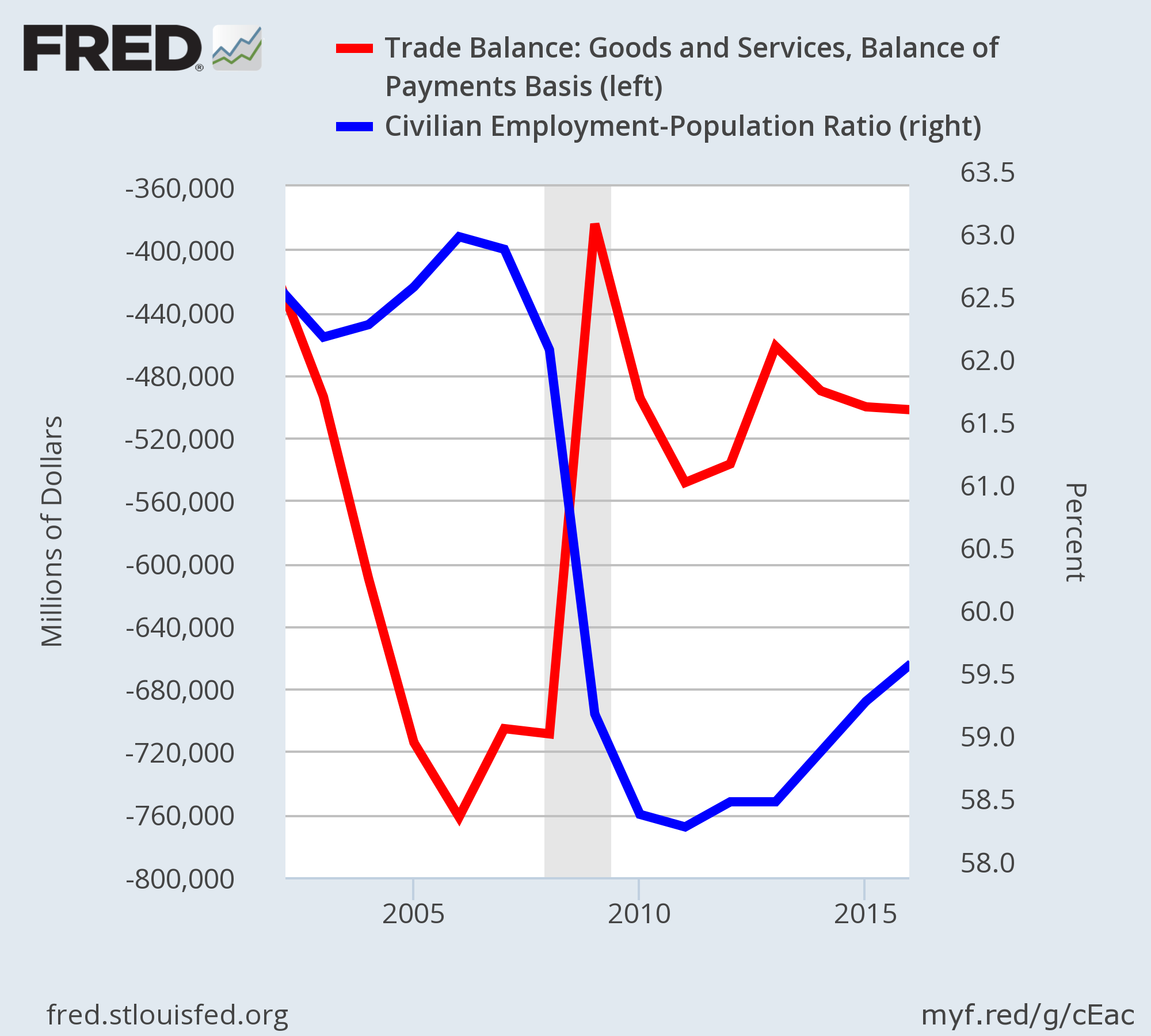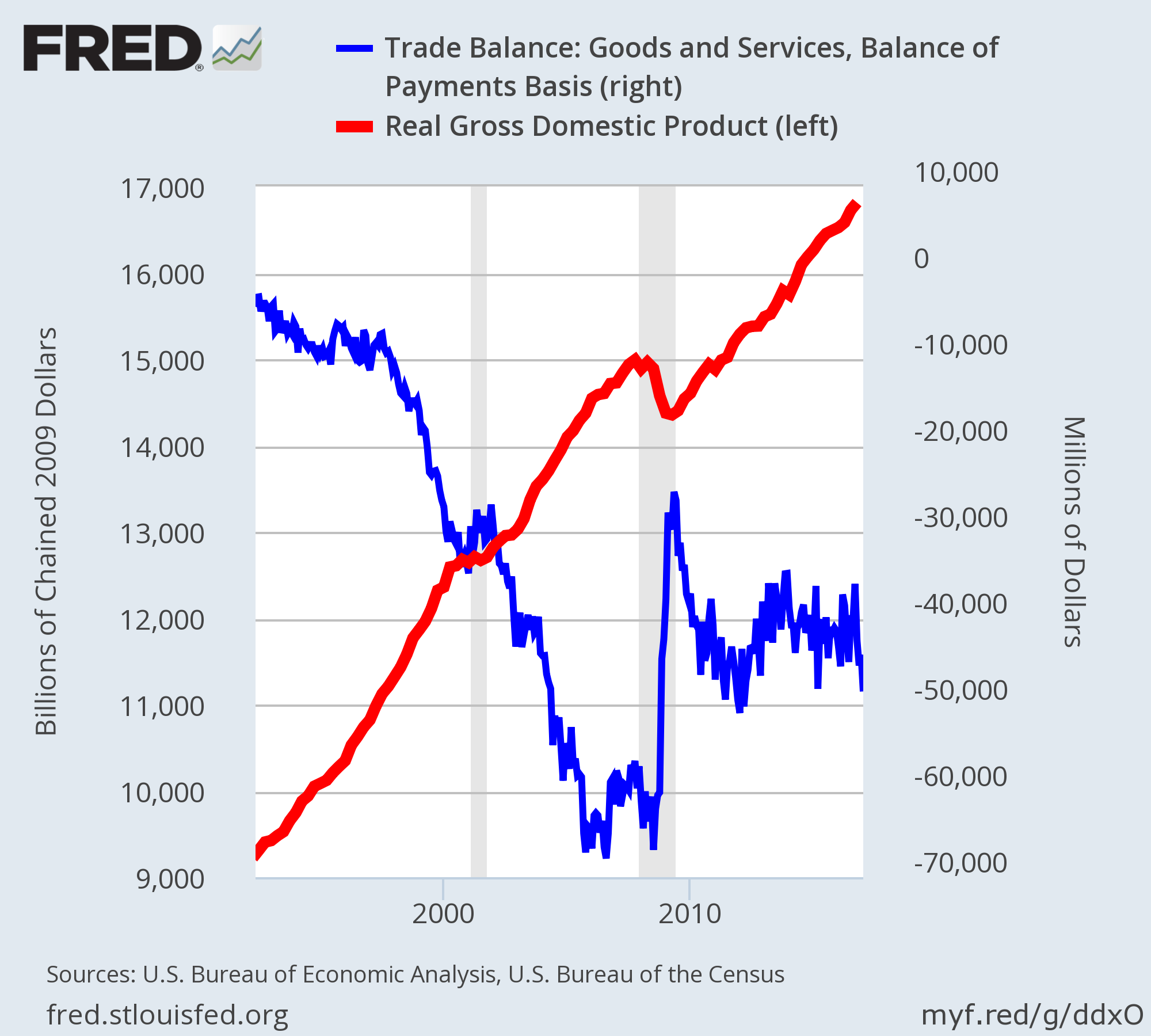ToddsterPatriot, net annual balances of trade affects their nation's GDP; if there's zero net balance then the nation's trade balance had essentially little or no net effect upon their nation's GDP. Trade surpluses are positive, and trade deficits are negative balances of trade.Importing and exporting, (i.e. international trade) is not detrimental to a nation's GDP,
The GDP formula shows every dollar of imports reduces GDP by $1.
Are imports always detrimental to domestic production?
The actual extents of contributions or reductions to a nations' GDPs due to their nation's global trade are generally more, and never less than the nation's net annual trade balance.
Portions of domestic production that supported production of globally traded goods, but are not reflected within their price valuations, or were affected by the production of globally traded goods, cannot be identified and attributed to global trade.
Respectfully, Supposn
Are imports always detrimental to domestic production?


